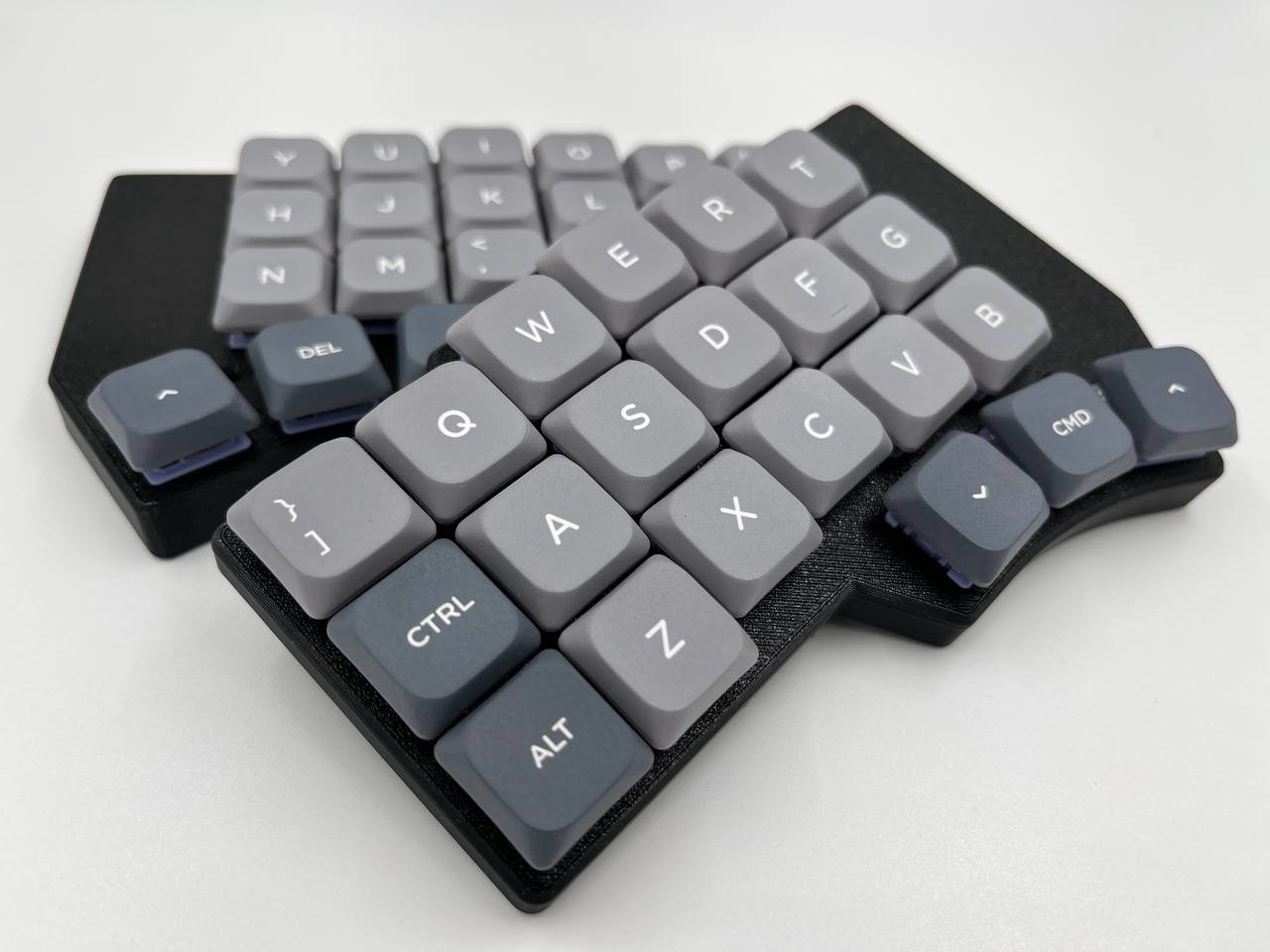Ergonaut One
 Ergonaut One in Modern Case
Ergonaut One in Modern Case
Ergonaut One is an open-source ergonomic wireless split mechanical keyboard designed by Ergonaut Keyboards.
Inspiration for the keyboard was taken from these projects:
- Corne by foostan
- Dao by yumagulovrn
Idea
We wanted to create a pretty affordable, nice looking, and, most importantly, very DIY-friendly ergonomic wireless split keyboard with Gateron Low Profile switches.
Features
- Low-profile, which will reduce strain on your beautiful hands;
- Split. You can put the keyboard where it'll be comfortable exactly for you;
- Pretty long battery life. 250mAh battery gives up to a month of usage without charging;
- Wide availability and range of compatible keycaps;
- Easily replaceable switches thanks to hot-swap sockets;
- Budget-friendly, because:
- It uses relatively cheap and widely available Seeed Studio XIAO nRF52840 as MCU;
- It uses one PCB design for both halves of the keyboard;
- Everything except PCB's, components and hardware (screws, nuts) can be 3D printed.
- Beginner-friendly, because:
- PCB is easy to solder;
- Cases are easy to print.
- Wireless by design - no unnecessary wires, no unused connectors on the board;
- Free in terms of hardware design. It's licensed under permissive CERN-OHL-P v2 license, which means:
- you are free to manufacture it yourself;
- you are free to sell your manufactured hardware for profit.
Why Gateron Low Profile?
In 2024, choices are:
Cherry MX styled
They are the most popular mechanical keyboard switches. They have an incredible amount of different switches for any keyboard enthusiast's taste. And an insane amount of aftermarket keycaps as well. But it was not the best choice for us, because we wanted to create a low-profile keyboard, and MX-styled switches are very tall by design.
Kailh Choc
This was our next obvious choice since it's pretty popular among ergonomic keyboard communities. They are normal switches, but they have some flaws:
- Lack of compatible keycaps;
- Low availability of keycaps;
- Tactile switches are mediocre at best (except Sunset variant - they are pretty good);
- There are two standards for keycap sizes - 19x19mm and 18x17mm. Different keycaps are designed for different standards, which gives end-users unnecessary headaches while shopping for new keycaps.
Gateron Low Profile (GLP)
This is a relatively new standard. The first iteration (KS27) wasn't that great, but the second (KS33) quickly caught our eyes. And it became clear that we want to use them, because:
- Tactile switches are way better than most of the tactile Chocs;
- All GLP switches are pre-lubed from the factory and buttery-smooth;
- They support a wide variety of MX-styled keycaps;
- They use MX-styled springs, which means that you can easily swap out them and change the switch weight;
- There is already a wide selection of KS33 switches;
- They are only slightly taller than Chocs.
It's the best of two worlds! They are still low-profile but have a lot of advantages of MX-styled switches.